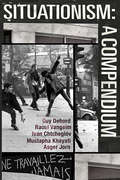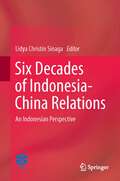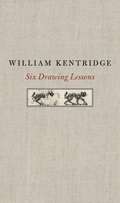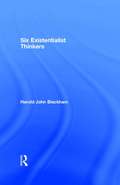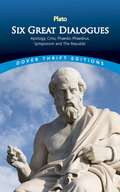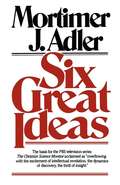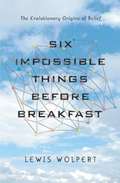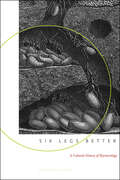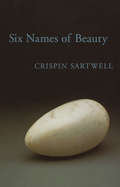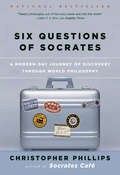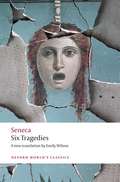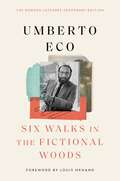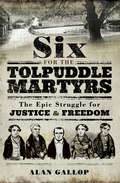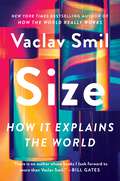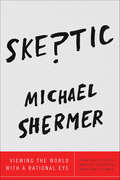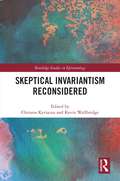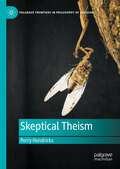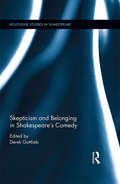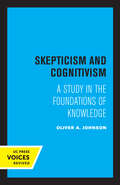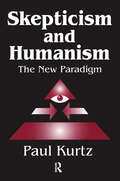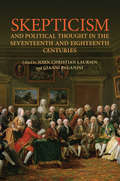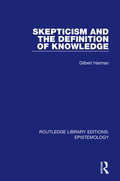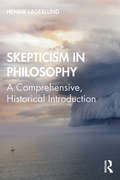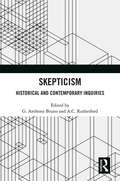- Table View
- List View
Situationism: A Compendium
by Guy Debord Ivan Chtcheglov Mustapha Khayati Raoul Vaneigem Asger JornAfter Guy Debord's seminal Society of the Spectacle, this new compendium brings together eight other important situationist works. Ivan Chtcheglov opens proceedings via his Formulary for a New Urbanism (1953), with it's quasi-mythical demand that resonated down through generations: "The hacienda must be built", followed by two brief but illuminating pieces from Asger Jorn, who's sandpaper book cover later turned up under the same Factory Records roof as Manchesters' own Hacienda, on the Durrtti Column's "Return of the Durrutti Column" ( the title itself lifted from Andre Bertrand's détourned pro-situ comic strip). Debord's The Decline and Fall of the Spectacle-Commodity Economy-was an immediate, razor sharp response to the LA/Watts Riots of 1965, it's analysis of the relationship between the rioter and the meaningless, unaffordable commodities they loot or destroy resonating heavily today. Tunisian situationist Mustapha Khayati contributes Address to Revolutionaries of Algeria and of All Countries and the game changing "On the Poverty of Student Life", the match that arguably lit the fires of May 68'. Raoul Vaneigem's The Revolution of Everyday Life finishes things off in defiant fashion : ". You're f*%@g Around With Us? -- Not For Long!"
Six Decades of Indonesia-China Relations: An Indonesian Perspective
by Lidya Christin SinagaThis book analyses the relations between Indonesia and China in the regional dynamics of Southeast Asia. The rising China has influenced global and regional constellations, and also has direct impacts for Indonesia. While this fact should be viewed as an opportunity that needs to be fully utilised for the benefit of national development of Indonesia, we should also prepare for the threats embedded in this development, especially from the service and labour sectors. As such, this book suggests that equal positions in relations between Indonesia and China are absolutely necessary, since both countries need each other in their efforts to maintain the continuity of their development. It also argues that to further strengthen its position in relation to China in the future, Indonesia's diplomacy requires an integrated grand design that supports the creation of economic and political power in the face of the emergence of China's economic and military power.
Six Drawing Lessons
by William KentridgeOver the last three decades, the visual artist William Kentridge has garnered international acclaim for his work across media including drawing, film, sculpture, printmaking, and theater. Rendered in stark contrasts of black and white, his images reflect his native South Africa and, like endlessly suggestive shadows, point to something more elemental as well. Based on the 2012 Charles Eliot Norton Lectures, Six Drawing Lessons is the most comprehensive collection available of Kentridge’s thoughts on art, art-making, and the studio. <p><p> Art, Kentridge says, is its own form of knowledge. It does not simply supplement the real world, and it cannot be purely understood in the rational terms of traditional academic disciplines. The studio is the crucial location for the creation of meaning: the place where linear thinking is abandoned and the material processes of the eye, the hand, the charcoal and paper become themselves the guides of creativity. Drawing has the potential to educate us about the most complex issues of our time. This is the real meaning of “drawing lessons.” <p> Incorporating elements of graphic design and ranging freely from discussions of Plato’s cave to the Enlightenment’s role in colonial oppression to the depiction of animals in art, Six Drawing Lessons is an illustration in print of its own thesis of how art creates knowledge. Foregrounding the very processes by which we see, Kentridge makes us more aware of the mechanisms―and deceptions―through which we construct meaning in the world.
Six Existentialist Thinkers
by Harold John BlackhamIncludes summary but substantial accounts of the thought of Kierkegaard, Nietzsche, Jaspers, Marcel, Heidegger and Sartre, and a concluding essay that attempts to interpret the whole Existentialist movement.
Six Facets Of Light
by Ann Wroe'She's a genius, I believe, because she lights up every subject she touches.' Hilary Mantel A Spectator Book of the YearGoethe claimed to know what light was. Galileo and Einstein both confessed they didn't. On the essential nature of light, and how it operates, the scientific jury is still out. There is still time, therefore, to listen to painters and poets on the subject. They, after all, spend their lives pursuing light and trying to tie it down.Six Facets of Light is a series of meditations on this most elusive and alluring feature of human life. Set mostly on the Downs and coastline of East Sussex, the most luminous part of England, it interweaves a walker's experiences of light in Nature with the observations, jottings and thoughts of a dozen writers and painters - and some scientists - who have wrestled to define and understand light. From Hopkins to Turner, Coleridge to Whitman, Fra Angelico to Newton, Ravilious to Dante, the mystery of light is teased out and pondered on. Some of the results are surprising.By using mostly notebooks and sketchbooks, this book becomes a portrait of the transitoriness, randomness, swiftness, frustrations and quicksilver beauty that are the essence of light. It is a work to be enjoyed, pondered over, engaged with, provoked by; to be packed in the rucksack of every walker heading for the sea or the hills, or to be opened to bring that outside radiance within four dark town walls.Lifescapes by Ann Wroe is coming in August 2023.
Six Great Dialogues: Apology, Crito, Phaedo, Phaedrus, Symposium, the Republic (Dover Thrift Edition) (Dover Thrift Editions)
by PlatoPlato's 4th century B.C. Dialogues rank among Western civilization's most important and influential philosophical works. All six of these works feature authoritative translations by the distinguished classical scholar Benjamin Jowett.
Six Great Ideas
by Mortimer J. AdlerThis enlightening study is the result of group discussions at Dr. Adler's annual seminar in Aspen, Colorado, and conversations between Dr. Adler and Bill moyers filmed for public television.Each summer, Mortimer J. Adler conducts a seminar at the Aspen Institute in Colorado. At the 1981 seminar, leaders from the worlds of business, literature, education, and the arts joined him in an in-depth consideration of the six great ideas that are the subject of this book: Truth, Goodness, and Beauty - the ideas we judge by; and Liberty, Equality and Justice - the ideas we act on. The group discussions and conversations between Dr. Adler and journalist Bill Moyers were filmed for broadcast on public television, and thousands of people followed their exploration of these important ideas. Discarding the out-worn and off-putting jargon of academia, Dr. Adler dispels the myth that philosophy is the exclusive province of the specialist. He argues that "philosophy is everybody's business," and that a better understanding of these fundamental concepts is essential if we are to cope with the political, moral, and social issues that confront us daily.
Six Impossible Things Before Breakfast: The Evolutionary Origins of Belief
by Lewis Wolpert[From the book jacket] Why do 70 percent of Americans believe in angels, while others are convinced that they've been abducted by aliens? Why does every society around the world have a religious tradition of some sort? What makes people believe in improbable things when all the evidence points to the contrary? In Through the Looking Glass, the White Queen tells Alice that to believe in a wildly far-fetched fact, she simply needs to "draw a long breath and shut [her] eyes." Alice finds this advice ridiculous. But don't almost all of us, at some time or another, engage in magical thinking? Franklin Roosevelt and Winston Churchill canceled all appointments on Friday the 13th. Niels Bohr tacked a horseshoe over his desk-just to add some luck to his quantum universe. In Six Impossible Things Before Breakfast, evolutionary biologist Lewis Wolpert delves into the important and timely debate over the nature of belief, looking at belief's psychological basis to discover just what evolutionary purpose it could serve. Are there advantages to imaginary friends and fantasy worlds, superstitions and religions? Are we born with an evolutionary defense mechanism to believe in things that make us feel better about the world? Wolpert leads the reader through all that science can tell us about the beliefs of which we are so instinctually sure. He deftly explores these questions and the different types of belief - those of children, of animals, of the religious, and of those suffering from psychiatric disorders - and he asks whether it is possible to live without belief, or whether it is a necessary component of a functioning society.
Six Legs Better: A Cultural History of Myrmecology (Animals, History, Culture)
by Charlotte SleighThis “provocative, complex” cultural history examines how the study of ants influenced shifting perceptions of humanity in the nineteenth and twentieth centuries (Times Literary Supplement, UK).Ants long have fascinated linguists, human sociologists, and even cyberneticians. At the end of the nineteenth century, ants seemed to be admirable models for human life and were praised for their work ethic, communitarianism, and apparent empathy. They provided a natural-theological lesson on the relative importance of humans within creation and inspired psychologists to investigate the question of instinct and its place in the life of higher animals and humans. By the 1930s, however, ants came to symbolize one of modernity’s deepest fears: the loss of selfhood. Researchers then viewed the ant colony as an unthinking mass, easily ruled and slavishly organized.In this volume, Charlotte Sleigh uses specific representations of ants within the field of entomology from the late nineteenth to mid-twentieth centuries to explore the broader role of metaphors in science and their often unpredictable translations. Six Legs Better demonstrates the remarkable historical role played by ants as a node where notions of animal, human, and automaton intersect.
Six Names of Beauty
by Crispin SartwellBeauty may be in the eye of the beholder, but it's also in the language we use and everywhere in the world around us. In this elegant, witty, and ultimately profound meditation on what is beautiful, Crispin Sartwell begins with six words from six different cultures - ancient Greek's 'to kalon', the Japanese idea of 'wabi-sabi', Hebrew's 'yapha', the Navajo concept 'hozho', Sanskrit 'sundara', and our own English-language 'beauty'.Each word becomes a door onto another way of thinking about, and looking at, what is beautiful in the world, and in our lives. In Sartwell's hands these six names of beauty - and there could be thousands more - are revealed as simple and profound ideas about our world and our selves.
Six Questions of Socrates: A Modern-Day Journey of Discovery through World Philosophy
by Christopher PhillipsHow people around the world grapple with the great questions posed by Socrates. What is virtue? What is moderation? What is justice? What is courage? What is good? What is piety? Socrates thought that understanding the perspectives of others on these six great questions would help him become a more excellent human being. Following in Socrates's footsteps, Christopher Phillips--"Johnny Appleseed with a master's degree" (Utne Reader)--investigates these same questions, beginning in the marketplace of modern-day Athens. He goes on to investigate the timely responses and outlooks of people from different cultures and backgrounds around the world: from Greece and Spain to Japan and Korea, Mexico City, and Chiapas, where the region's indigenous people struggle for fundamental human rights. Phillips also traveled throughout the United States, holding dialogues in diverse communities from New York City to the Navajo Nation. Introducing us to less familiar thinkers in non-Western traditions who were kindred spirits of Socrates, Phillips enlarges our perspectives on life's fundamental questions, creating an innovative world survey of philosophy.
Six Tragedies (Oxford World's Classics)
by Emily Wilson Seneca Corporation StaffHere is a lively, readable, and accurate verse translation of the six best plays by one of the most influential of all classical Latin writers--the only tragic playwright from ancient Rome whose work survives. Tutor to the emperor Nero, Seneca lived through uncertain, oppressive, and violent times, and his dramas depict the extremes of human behavior. Rape, suicide, child-murder, incestuous love, madness, and mutilation afflict the characters, who are obsessed and destroyed by their feelings. Seneca forces us to think about the difference between compromise and hypocrisy, about what happens when emotions overwhelm judgment, and about how a person can be good, calm, or happy in a corrupt society and under constant threat of death. In addition to her superb translation, Emily Wilson provides an invaluable introduction which offers a succinct account of Seneca's life and times, his philosophical beliefs, the literary form of the plays, and their immense influence on European literature. The book also includes an up-to-date bibliography and explanatory notes which identify mythological allusions.
Six Walks in the Fictional Woods (The Charles Eliot Norton lectures ; #1992-1993)
by Umberto Eco“Erudite, wide-ranging, and slyly humorous.” —The AtlanticOne of the great novelists and public intellectuals of our time gives a master class on the philosophy of fiction.Umberto Eco was fond of pointing out that all writing is narrative. He published his famed debut novel The Name of the Rose when he was forty-eight years old, yet he believed that everything he had written to that point—from treatises on semiotics to essays on mass culture—took the form of a story. To Eco, scholarship, much like fiction, was shaped by narrative. It was the stuff of life itself.Six Walks in the Fictional Woods, a collection of essays based on Eco’s 1992–1993 Norton Lectures at Harvard, illuminates fiction’s porous boundaries—in particular, the myriad ways that literary works conscript readers’ experiences and expectations. Fiction, says Eco, can offer metaphysical comfort by appealing to our desire for a smaller, more legible world, one that gives a definitive answer to the question of “whodunnit?” But it also makes demands of us, presupposing a model reader who possesses the cultural knowledge necessary to interpret the text, as well as a willingness to follow the never-quite-specified rules of the literary game.Whether he is dissecting grammatical ambiguities in Gérard de Nerval’s nineteenth-century romantic masterpiece Sylvie, studying the rhythms of Ian Fleming’s James Bond novels, or tracing the web of fraud and misattribution that produced the antisemitic conspiracy theory of The Protocols of the Elders of Zion, this is Eco at his very best: intellectually omnivorous, endlessly fascinated by hoaxes, and always an adept navigator of the narrative forests that surround us.
Six for the Tolpuddle Martyrs: The Epic Struggle for Justice & Freedom
by Alan GallopIn 1834 six farm laborers from the Dorset hamlet of Tolpuddle fell foul of draconian Victorian laws prohibiting assembly. Today the names of George Loveless and his brother James, Thomas Standfield and his son John, James Brine and James Hammett, who made up the Tolpuddle Martyrs, stand high on the roll of British men who have been victimized for their beliefs but stood steadfast in the face of persecution. They refused to be persuaded to betray their principles either by the promise of release or by transportation to Australia. The Tolpuddle men fought to win their freedom sustained by their passionate conviction that their sacrifices would not be in vain. Their experience and example have proved to be an inspiration for future generations and they remain icons of pioneering trade unionism.The Author has thoroughly researched their story and the result is a fascinating and revealing reexamination of this legendary saga. Their triumph over legal persecution and abuses of power over 180 years ago is told afresh in this comprehensive and attractively illustrated book which delves deeper into their story than ever before.
Size: How It Explains the World
by Vaclav SmilFrom the New York Times bestselling author of How the World Really Works, a wide-ranging look at the most fundamental governing principle of our world: size, whose laws, limits, and peculiarities offer the key to understanding health, wealth, and even happiness“No one writes about the great issues of our time with more rigor or erudition than Vaclav Smil.” — Elizabeth KolbertTo answer the most important questions of our age, we must understand size. Neither bacteria nor empires are immune to its laws. Measuring it is challenging, especially where complex systems like economies are concerned, yet mastering it offers rich rewards: the rise of the West, for example, was a direct result of ever more accurate and standardized measurements.Using the interdisciplinary approach that has won him a wide readership, Smil draws upon history, earth science, psychology, art, and more to offer fresh insight into some of our biggest challenges, including income inequality, the spread of infectious disease, and the uneven impacts of climate change. Size explains the regularities—and peculiarities—of the key processes shaping life (from microbes to whales), the Earth (from asteroids to volcanic eruptions), technical advances (from architecture to transportation), and societies and economies (from cities to wages). This book about the big and the small, and the relationship between them, answers the big and small questions of human existence:What makes a human society too big? What about a human being?Which alternative energy sources have the best chance of scaling and reducing our dependence on fossil fuels?Why do tall people make more money?What makes a face beautiful? How about a cathedral?How can changing the size of your plates help you lose weight?The latest masterwork of “an ambitious and astonishing polymath who swings for fences” (Wired) Size is a mind-bending journey that turns the modern world on its head.
Skeptic: Viewing the World with a Rational Eye
by Michael ShermerCollected essays from bestselling author Michael Shermer's celebrated columns in Scientific AmericanFor fifteen years, bestselling author Michael Shermer has written a column in Scientific American magazine that synthesizes scientific concepts and theory for a general audience. His trademark combination of deep scientific understanding and entertaining writing style has thrilled his huge and devoted audience for years. Now, in Skeptic, seventy-five of these columns are available together for the first time; a welcome addition for his fans and a stimulating introduction for new readers.
Skeptical Invariantism Reconsidered (Routledge Studies in Epistemology)
by Christos Kyriacou Kevin WallbridgeThis collection of original essays explores the topic of skeptical invariantism in theory of knowledge. It eschews historical perspectives and focuses on this traditionally underexplored, semantic characterization of skepticism. The book provides a carefully structured, state-of-the-art overview of skeptical invariantism and offers up new questions and avenues for future research. It treats this semantic form of skepticism as a serious position rather than assuming that skepticism is false and attempting to diagnose where arguments for skepticism go wrong. The essays take up a wide range of different philosophical perspectives on three key questions in the debate about skeptical invariantism: (1) whether the standards for knowledge vary, (2) how demanding the standards for knowledge are, and (3) whether the kind of evidence, reasons, methods, processes, etc. that we can bring to bear are sufficient to meet those standards. Skeptical Invariantism Reconsidered will be of interest to scholars and advanced students in epistemology and the philosophy of language.
Skeptical Theism (Palgrave Frontiers in Philosophy of Religion)
by Perry HendricksIs evil evidence against the existence of God? Does divine hiddenness provide an evidential problem for theism? Is our evolutionary history evidence that God doesn’t exist? Skeptical theism is the view that humans are cognitively limited in important ways that prevent us from providing affirmative answers to these evidential questions. In this book—the first monograph published on skeptical theism—Perry Hendricks gives careful, novel, and compelling arguments in favor of skeptical theism and provides a comprehensive defense of it, addressing all major objections to skeptical theism on offer. The implications of skeptical theism are teased out: it undermines the most prominent arguments for atheism on offer, which significantly lowers the epistemic status of atheism.
Skepticism and Belonging in Shakespeare's Comedy (Routledge Studies in Shakespeare)
by Derek GottliebThis book recovers a sense of the high stakes of Shakespearean comedy, arguing that the comedies, no less than the tragedies, serve to dramatize responses to the condition of being human, responses that invite scholarly investigation and explanation. Taking its cue from Stanley Cavell’s influential readings of Othello and Lear, the book argues that exposure or vulnerability to others is the source of both human happiness and human misery; while the tragedies showcase attempts at the evasion of such vulnerability through the self-defeating pursuit of epistemological certainty, the comedies present the drama and the difficulty of turning away from an epistemological register in order to productively respond to the fact of our humanity. Where Shakespeare’s tragedies might be viewed in Cavellian terms as the drama of skepticism, Shakespeare’s comedies then exemplify the drama of acknowledgement. As a parallel and a preamble, Gottlieb suggests that the field of literary studies is itself a site of such revealing responses: where competing research methods strive to foreclose upon (or, alternatively, rejoice in) epistemological uncertainty, such commitments bespeak an urge to avoid or circumvent the human in the practice of scholarship. Reading Shakespeare’s comedies in tandem with a "defactoist" view of teaching and learning points in the direction of a new humanism, one that eschews both the relativism of old deconstruction and contemporary Presentism and the determinism of various kinds of structural accounts. This book offers something new in scholarly and popular understanding of Shakespeare’s work, doing so with both philosophical rigor and literary attention to the difficult work of reading.
Skepticism and Cognitivism: A Study in the Foundations of Knowledge
by Oliver A. JohnsonSkepticism and Cognitivism addresses the fundamental question of epistemology: Is knowledge possible? It approaches this query with an evaluation of the skeptical tradition in Western philosophy, analyzing thinkers who have claimed that we can know nothing. After an introductory chapter lays out the central issues, chapter 2 focuses on the classical skeptics of the Academic and Pyrrhonistic schools and then on the skepticism of David Hume. Chapters 3 through 5 are devoted to contemporary defenders of skepticism—Keith Lehrer, Arne Næss, and Peter Unger. In chapter 6, author Oliver A. Johnson dons the mantle of skeptic himself and develops and adds theories to the skeptical arsenal. He closes with an examination of the relationship between skepticism and cognitivism, reaching and defending conclusions on the nature and extent of possible human knowledge. This title is part of UC Press's Voices Revived program, which commemorates University of California Press’s mission to seek out and cultivate the brightest minds and give them voice, reach, and impact. Drawing on a backlist dating to 1893, Voices Revived makes high-quality, peer-reviewed scholarship accessible once again using print-on-demand technology. This title was originally published in 1978.
Skepticism and Humanism: The New Paradigm
by Paul KurtzAs we begin the third millennium there is cause for cautious optimism regarding the human prospect. Democratic revolutions and the doctrine of universal human rights have captured the imagination of large sectors of humanity, while major advances in science and technology continue to conquer disease and extend life, contributing to rising standards of living, affluence, and cultural freedom on a worldwide basis. Paradoxically, at the same time ancient authoritarian fundamentalist religions have grown in vitriolic intensity along with bizarre New Age, media-driven paranormal belief systems. Also surprising is the resurgence of primitive tribal and ethnic loyalties, unleashing wars of intolerance and bitterness. In Skepticism and Humanism, Paul Kurtz locates these threatening developments within a long-standing and largely unchallenged theological worldview. He proposes, as an alternative to religion, a new cultural paradigm rooted in scientific naturalism, rationalism, and a humanistic outlook.An estimated 60 percent of scientists are atheists or agnostics. However, the skeptical world view has been given little currency even in advanced societies, because of a cultural prohibition against the criticism of religion. At the same time, science has become increasingly narrow and specialized so that few people can draw on its broader intellectual and cultural implications. Skepticism and Humanism attempts to meet this need. It defends skepticism as a method for developing reliable knowledge by using scientific inquiry and reason to test all claims to truth. It also defends scientific naturalism-an evolutionary view of nature, life, and the human species. Kurtz sees the dominant religious doctrines as drawn from an agricultural/nomadic past, and emphasizes the need for a new outlook applicable to the postindustrial information age. At the same time, he rejects postmodernism for abandoning science and embracing a form of nihilism.There can be no doubt that as a new global civilization emerges, scientific naturalism, rationalism, and secular humanism have something significant to say about the meaning of life. Skepticism and Humanism shows how they can to foster democratic values and social prosperity. The book will be important for philosophers, scientists, and all those concerned with contemporary issues.
Skepticism and Political Thought in the Seventeenth and Eighteenth Centuries
by Gianni Paganini John Christian LaursenIn this collection, thirteen distinguished contributors examine the influence of the ancient skeptical philosophy of Pyrrho of Elis and Sextus Empiricus on early modern political thought. Classical skepticism argues that in the absence of certainty one must either suspend judgment and live by habit or act on the basis of probability rather than certainty. In either case, one must reject dogmatic confidence in politics and philosophy.Surveying the use of skepticism in works by Hobbes, Descartes, Hume, Smith, and Kant, among others, the essays in Skepticism and Political Thought in the Seventeenth and Eighteenth Centuries demonstrate the pervasive impact of skepticism on the intellectual landscape of early modern Europe. This volume is not just an authoritative account of skepticism's importance from the Enlightenment to the French Revolution, it is also the basis for understanding skepticism's continuing political implications.
Skepticism and the Definition of Knowledge (Routledge Library Editions: Epistemology)
by Gilbert HarmanOriginally published in 1990. This study argues that scepticism is an intelligible view and that the issue scepticism raises is whether or not certain sceptical hypotheses are as plausible as the ordinary views we accept. It discusses psychological concepts, definitions of knowledge, belief and hypothetic inference (inference to the best explanation). Starting from ‘Is skepticism a problem for epistemology’, the book takes us through the argument for the possibility of scepticism, including looking at sense data and considering memory and perception.
Skepticism in Philosophy: A Comprehensive, Historical Introduction
by Henrik LagerlundIn this book, Henrik Lagerlund offers students, researchers, and advanced general readers the first complete history of what is perhaps the most famous of all philosophical problems: skepticism. As the first of its kind, the book traces the influence of philosophical skepticism from its roots in the Hellenistic schools of Pyrrhonism and the Middle Academy up to its impact inside and outside of philosophy today. Along the way, the book covers skepticism during the Latin, Arabic, and Greek Middle Ages and during the Renaissance before moving on to cover Descartes’ methodological skepticism and Pierre Bayle’s super-skepticism in the seventeenth century. In the eighteenth century, it deals with Humean skepticism and the anti-skepticism of Reid, Shepherd, and Kant, taking care to also include reflections on the connections between idealism and skepticism (including skepticism in German idealism after Kant). The book covers similar themes in a chapter on G.E. Moore and Ludwig Wittgenstein, and then ends its historical overview with a chapter on skepticism in contemporary philosophy. In the final chapter, Lagerlund captures some of skepticism’s impact outside of philosophy, highlighting its relation to issues like the replication crisis in science and knowledge resistance.
Skepticism: Historical and Contemporary Inquiries
by A. C. Rutherford G. BrunoSkepticism is one of the most enduring and profound of philosophical problems. With its roots in Plato and the Sceptics to Descartes, Hume, Kant and Wittgenstein, skepticism presents a challenge that every philosopher must reckon with. In this outstanding collection philosophers engage with skepticism in five clear sections: the philosophical history of skepticism in Greek, Cartesian and Kantian thought; the nature and limits of certainty; the possibility of knowledge and related problems such as perception and the debates between objective knowledge and constructivism; the transcendental method as a response to skepticism and the challenge of naturalism; overcoming the skeptical challenge. Skepticism: Historical and Contemporary Inquiries is essential reading for students and scholars in epistemology and the history of philosophy and will also be of interest to those in related disciplines such as religion and sociology.
